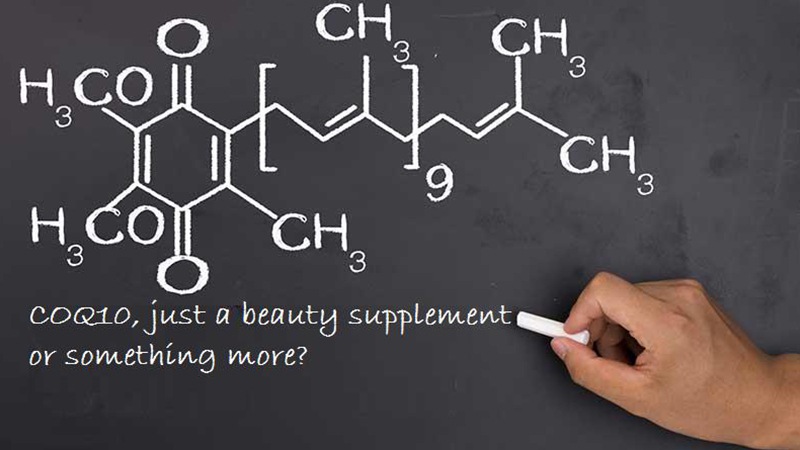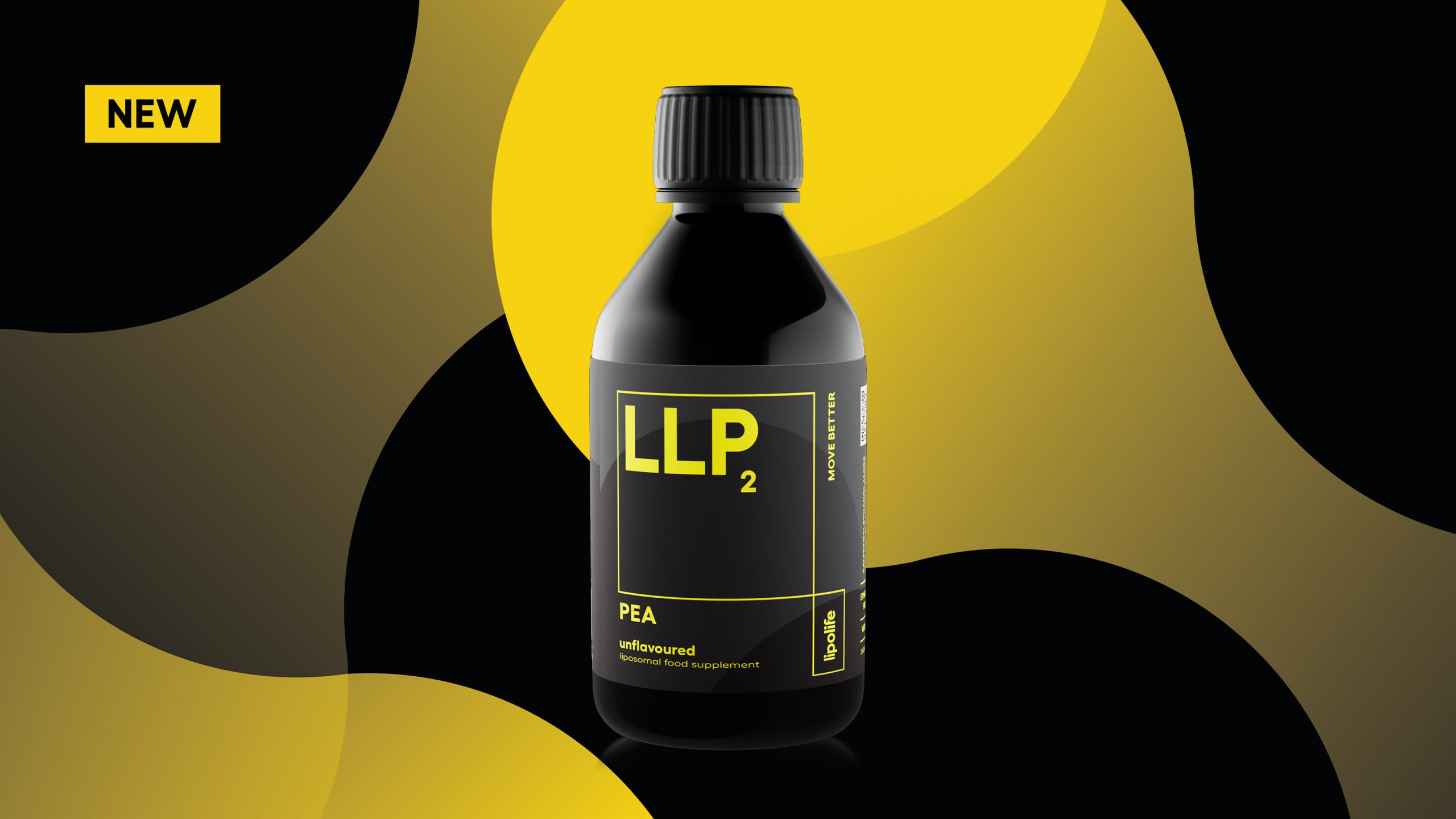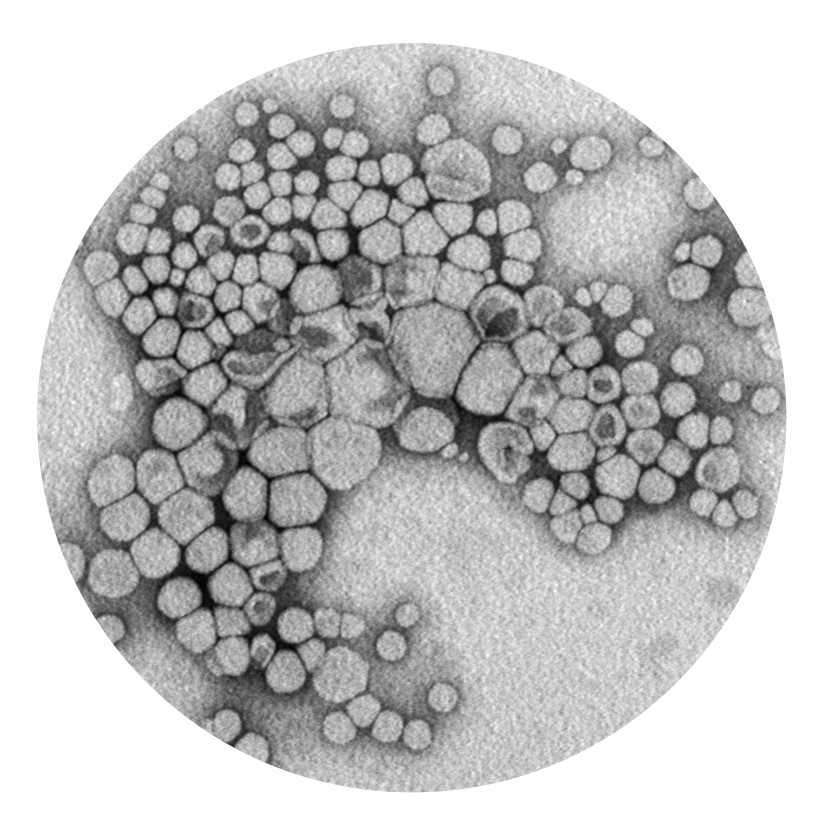CoQ10 Beauty and More
Date

Coenzyme Q10, also known as ubiquinone, ubidecarenone, ubiquinol and at times abbreviated to CoQ10 or Q10 is a coenzyme that is present in the bodies of most animals.
It is the only antioxidant that humans synthesise in the body.
CoQ10 is a fat-soluble substance which resembles a vitamin and is present in most eukaryotic cells, primarily in the mitochondria. CoQ10 works as an electron carrier in the mitochondria, the powerhouse of the cells, to produce energy and is also a powerful antioxidant. It is a component of the electron transport chain and participates in aerobic cellular respiration, which generates energy in the form of ATP. As 95% of the human body’s energy is generated this way, those organs with the highest energy requirements, such as the heart, liver, and kidney, have the highest CoQ10 concentrations.
CoQ10 is possibly most well known for being an ingredient in skin creams promising to reduce the signs of aging due to its ability to protect as well as repair the skin. In most people over the age of thirty, the levels of CoQ10 in the skin are below optimum levels resulting in reduced ability to produce collagen, elastin and other important skin molecules. Additionally, CoQ10-deficient skin may be more prone to damage from free radicals, which are particularly abundant in the skin since it is constantly exposed to the elements.
CoQ10 is naturally present in small amounts in a wide variety of foods but levels are particularly high in organ meats such as heart, liver, and kidney as well as beef, soy oil, sardines, mackerel, and peanuts. As it is only possible to obtain small amounts through diet and as certain pharmaceuticals such as statins can reduce CoQ10 levels in the body, supervised supplementation is becoming more common.
Supplementation of CoQ10 has been found to have a beneficial effect on the condition of some sufferers of migraine. This is based on the theory that migraines are a mitochondrial disorder and that CoQ10 can improve mitochondrial dysfunction. There aren’t many large studies that show strong evidence regarding Coenzyme Q10 and migraines however The Canadian Headache Society guideline for migraine prevention recommends, based on current evidence, that 300 mg of CoQ10 per day should be considered as a choice for prophylaxis.
The impairment of the heart’s ability to pump enough blood for all the body’s needs is known as congestive heart failure. In coronary artery disease, an accumulation of atherosclerotic plaque in the coronary arteries may prevent parts of the heart muscle from getting adequate blood supply, which ultimately results in cardiac damage and impaired pumping. Through several echocardiography studies it was discovered that myocardial coenzyme Q10 levels were lower in patients with more severe heart failure which led to several clinical trials of CoQ10 supplementation in heart failure patients.
In 2006 a number of small intervention trials that administered supplemental Q10 (100mg – 300mg a day for up to three months) to congestive heart failure patients demonstrated improvements in some cardiac function measures, in conjunction with conventional medical therapy. In the same year a meta-analysis of 10 randomised controlled trials found that coenzyme Q10 supplementation in heart failure patients resulted in a significant, 3.7% improvement in left ventricular ejection fraction.
A more recent study of 236 heart failure patients found that lower plasma levels of CoQ10 were associated with a heightened risk of mortality. A much larger trial is presently being conducted to determine the value of coenzyme Q10 supplementation as an adjunct to conventional medical therapy in the treatment of congestive heart failure and the results are sure to be very interesting.Weight loss. Of course there is no magic pill, no easy fix but there are some studies that link CoQ10 and weight loss due to CoQ10’s integral role in the production of cellular energy.By supplementing with Coenzyme Q10, your cells will have the energy they need to function at an optimum level and give your body the ability to proactively lose weight through exercise and diet and may even allow for passive fat burning by maximising your body’s ability to convert food to fuel.
Whilst the supplementation of CoQ10 is unproven as a vital addition for good health, it certainly seems that keeping the body’s CoQ10 levels boosted provides a number of positive benefits for general wellbeing.







